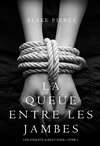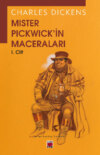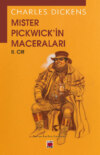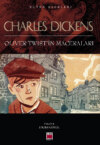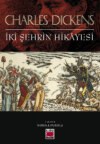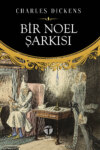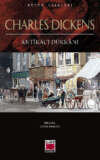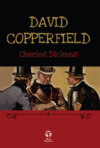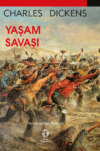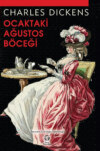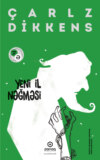Kitabı oku: «Oliver Twist, Illustrated; or, The Parish Boy's Progress», sayfa 16
‘Oh, of course!’ said the stranger, with a sneer. ‘Well; and what’s come of it?’
‘Nothing good,’ said the Jew.
‘Nothing bad, I hope?’ said the stranger, stopping short, and turning a startled look on his companion.
The Jew shook his head, and was about to reply, when the stranger, interrupting him, motioned to the house, before which they had by this time arrived: remarking, that he had better say what he had got to say, under cover: for his blood was chilled with standing about so long, and the wind blew through him.
Fagin looked as if he could have willingly excused himself from taking home a visitor at that unseasonable hour; and, indeed, muttered something about having no fire; but his companion repeating his request in a peremptory manner, he unlocked the door, and requested him to close it softly, while he got a light.
‘It’s as dark as the grave,’ said the man, groping forward a few steps. ‘Make haste!’
‘Shut the door,’ whispered Fagin from the end of the passage. As he spoke, it closed with a loud noise.
‘That wasn’t my doing,’ said the other man, feeling his way. ‘The wind blew it to, or it shut of its own accord: one or the other. Look sharp with the light, or I shall knock my brains out against something in this confounded hole.’
Fagin stealthily descended the kitchen stairs. After a short absence, he returned with a lighted candle, and the intelligence that Toby Crackit was asleep in the back room below, and that the boys were in the front one. Beckoning the man to follow him, he led the way upstairs.
‘We can say the few words we’ve got to say in here, my dear,’ said the Jew, throwing open a door on the first floor; ‘and as there are holes in the shutters, and we never show lights to our neighbours, we’ll set the candle on the stairs. There!’
With those words, the Jew, stooping down, placed the candle on an upper flight of stairs, exactly opposite to the room door. This done, he led the way into the apartment; which was destitute of all movables save a broken arm-chair, and an old couch or sofa without covering, which stood behind the door. Upon this piece of furniture, the stranger sat himself with the air of a weary man; and the Jew, drawing up the arm-chair opposite, they sat face to face. It was not quite dark; the door was partially open; and the candle outside, threw a feeble reflection on the opposite wall.
They conversed for some time in whispers. Though nothing of the conversation was distinguishable beyond a few disjointed words here and there, a listener might easily have perceived that Fagin appeared to be defending himself against some remarks of the stranger; and that the latter was in a state of considerable irritation. They might have been talking, thus, for a quarter of an hour or more, when Monks – by which name the Jew had designated the strange man several times in the course of their colloquy – said, raising his voice a little, ‘I tell you again, it was badly planned. Why not have kept him here among the rest, and made a sneaking, snivelling pickpocket of him at once?’
‘Only hear him!’ exclaimed the Jew, shrugging his shoulders.
‘Why, do you mean to say you couldn’t have done it, if you had chosen?’ demanded Monks, sternly. ‘Haven’t you done it, with other boys, scores of times? If you had had patience for a twelvemonth, at most, couldn’t you have got him convicted, and sent safely out of the kingdom; perhaps for life?’
‘Whose turn would that have served, my dear?’ inquired the Jew humbly.
‘Mine,’ replied Monks.
‘But not mine,’ said the Jew, submissively. ‘He might have become of use to me. When there are two parties to a bargain, it is only reasonable that the interests of both should be consulted; is it, my good friend?’
‘What then?’ demanded Monks.
‘I saw it was not easy to train him to the business,’ replied the Jew; ‘he was not like other boys in the same circumstances.’
‘Curse him, no!’ muttered the man, ‘or he would have been a thief, long ago.’
‘I had no hold upon him to make him worse,’ pursued the Jew, anxiously watching the countenance of his companion. ‘His hand was not in. I had nothing to frighten him with; which we always must have in the beginning, or we labour in vain. What could I do? Send him out with the Dodger and Charley? We had enough of that, at first, my dear; I trembled for us all.’
‘That was not my doing,’ observed Monks.
‘No, no, my dear!’ renewed the Jew. ‘And I don’t quarrel with it now; because, if it had never happened, you might never have clapped eyes on the boy to notice him, and so led to the discovery that it was him you were looking for. Well! I got him back for you by means of the girl; and then she begins to favour him.’
‘Throttle the girl!’ said Monks, impatiently.
‘Why, we can’t afford to do that just now, my dear,’ replied the Jew, smiling; ‘and, besides, that sort of thing is not in our way; or, one of these days, I might be glad to have it done. I know what these girls are, Monks, well. As soon as the boy begins to harden, she’ll care no more for him, than for a block of wood. You want him made a thief. If he is alive, I can make him one from this time; and, if – if – ’ said the Jew, drawing nearer to the other, – ‘it’s not likely, mind, – but if the worst comes to the worst, and he is dead – ’
‘It’s no fault of mine if he is!’ interposed the other man, with a look of terror, and clasping the Jew’s arm with trembling hands. ‘Mind that. Fagin! I had no hand in it. Anything but his death, I told you from the first. I won’t shed blood; it’s always found out, and haunts a man besides. If they shot him dead, I was not the cause; do you hear me? Fire this infernal den! What’s that?’
‘What!’ cried the Jew, grasping the coward round the body, with both arms, as he sprung to his feet. ‘Where?’
‘Yonder! replied the man, glaring at the opposite wall. ‘The shadow! I saw the shadow of a woman, in a cloak and bonnet, pass along the wainscot like a breath!’
The Jew released his hold, and they rushed tumultuously from the room. The candle, wasted by the draught, was standing where it had been placed. It showed them only the empty staircase, and their own white faces. They listened intently: a profound silence reigned throughout the house.
‘It’s your fancy,’ said the Jew, taking up the light and turning to his companion.
‘I’ll swear I saw it!’ replied Monks, trembling. ‘It was bending forward when I saw it first; and when I spoke, it darted away.’
The Jew glanced contemptuously at the pale face of his associate, and, telling him he could follow, if he pleased, ascended the stairs. They looked into all the rooms; they were cold, bare, and empty. They descended into the passage, and thence into the cellars below. The green damp hung upon the low walls; the tracks of the snail and slug glistened in the light of the candle; but all was still as death.
‘What do you think now?’ said the Jew, when they had regained the passage. ‘Besides ourselves, there’s not a creature in the house except Toby and the boys; and they’re safe enough. See here!’
As a proof of the fact, the Jew drew forth two keys from his pocket; and explained, that when he first went downstairs, he had locked them in, to prevent any intrusion on the conference.
This accumulated testimony effectually staggered Mr. Monks. His protestations had gradually become less and less vehement as they proceeded in their search without making any discovery; and, now, he gave vent to several very grim laughs, and confessed it could only have been his excited imagination. He declined any renewal of the conversation, however, for that night: suddenly remembering that it was past one o’clock. And so the amiable couple parted.
CHAPTER XXVII – ATONES FOR THE UNPOLITENESS OF A FORMER CHAPTER; WHICH DESERTED A LADY, MOST UNCEREMONIOUSLY
As it would be, by no means, seemly in a humble author to keep so mighty a personage as a beadle waiting, with his back to the fire, and the skirts of his coat gathered up under his arms, until such time as it might suit his pleasure to relieve him; and as it would still less become his station, or his gallantry to involve in the same neglect a lady on whom that beadle had looked with an eye of tenderness and affection, and in whose ear he had whispered sweet words, which, coming from such a quarter, might well thrill the bosom of maid or matron of whatsoever degree; the historian whose pen traces these words – trusting that he knows his place, and that he entertains a becoming reverence for those upon earth to whom high and important authority is delegated – hastens to pay them that respect which their position demands, and to treat them with all that duteous ceremony which their exalted rank, and (by consequence) great virtues, imperatively claim at his hands. Towards this end, indeed, he had purposed to introduce, in this place, a dissertation touching the divine right of beadles, and elucidative of the position, that a beadle can do no wrong: which could not fail to have been both pleasurable and profitable to the right-minded reader but which he is unfortunately compelled, by want of time and space, to postpone to some more convenient and fitting opportunity; on the arrival of which, he will be prepared to show, that a beadle properly constituted: that is to say, a parochial beadle, attached to a parochial workhouse, and attending in his official capacity the parochial church: is, in right and virtue of his office, possessed of all the excellences and best qualities of humanity; and that to none of those excellences, can mere companies’ beadles, or court-of-law beadles, or even chapel-of-ease beadles (save the last, and they in a very lowly and inferior degree), lay the remotest sustainable claim.
Mr. Bumble had re-counted the teaspoons, re-weighed the sugar-tongs, made a closer inspection of the milk-pot, and ascertained to a nicety the exact condition of the furniture, down to the very horse-hair seats of the chairs; and had repeated each process full half a dozen times; before he began to think that it was time for Mrs. Corney to return. Thinking begets thinking; as there were no sounds of Mrs. Corney’s approach, it occured to Mr. Bumble that it would be an innocent and virtuous way of spending the time, if he were further to allay his curiousity by a cursory glance at the interior of Mrs. Corney’s chest of drawers.
Having listened at the keyhole, to assure himself that nobody was approaching the chamber, Mr. Bumble, beginning at the bottom, proceeded to make himself acquainted with the contents of the three long drawers: which, being filled with various garments of good fashion and texture, carefully preserved between two layers of old newspapers, speckled with dried lavender: seemed to yield him exceeding satisfaction. Arriving, in course of time, at the right-hand corner drawer (in which was the key), and beholding therein a small padlocked box, which, being shaken, gave forth a pleasant sound, as of the chinking of coin, Mr. Bumble returned with a stately walk to the fireplace; and, resuming his old attitude, said, with a grave and determined air, ‘I’ll do it!’ He followed up this remarkable declaration, by shaking his head in a waggish manner for ten minutes, as though he were remonstrating with himself for being such a pleasant dog; and then, he took a view of his legs in profile, with much seeming pleasure and interest.
He was still placidly engaged in this latter survey, when Mrs. Corney, hurrying into the room, threw herself, in a breathless state, on a chair by the fireside, and covering her eyes with one hand, placed the other over her heart, and gasped for breath.
‘Mrs. Corney,’ said Mr. Bumble, stooping over the matron, ‘what is this, ma’am? Has anything happened, ma’am? Pray answer me: I’m on – on – ’ Mr. Bumble, in his alarm, could not immediately think of the word ‘tenterhooks,’ so he said ‘broken bottles.’
‘Oh, Mr. Bumble!’ cried the lady, ‘I have been so dreadfully put out!’
‘Put out, ma’am!’ exclaimed Mr. Bumble; ‘who has dared to – ? I know!’ said Mr. Bumble, checking himself, with native majesty, ‘this is them wicious paupers!’
‘It’s dreadful to think of!’ said the lady, shuddering.
‘Then don’t think of it, ma’am,’ rejoined Mr. Bumble.
‘I can’t help it,’ whimpered the lady.
‘Then take something, ma’am,’ said Mr. Bumble soothingly. ‘A little of the wine?’
‘Not for the world!’ replied Mrs. Corney. ‘I couldn’t, – oh! The top shelf in the right-hand corner – oh!’ Uttering these words, the good lady pointed, distractedly, to the cupboard, and underwent a convulsion from internal spasms. Mr. Bumble rushed to the closet; and, snatching a pint green-glass bottle from the shelf thus incoherently indicated, filled a tea-cup with its contents, and held it to the lady’s lips.
‘I’m better now,’ said Mrs. Corney, falling back, after drinking half of it.
Mr. Bumble raised his eyes piously to the ceiling in thankfulness; and, bringing them down again to the brim of the cup, lifted it to his nose.
‘Peppermint,’ exclaimed Mrs. Corney, in a faint voice, smiling gently on the beadle as she spoke. ‘Try it! There’s a little – a little something else in it.’
Mr. Bumble tasted the medicine with a doubtful look; smacked his lips; took another taste; and put the cup down empty.
‘It’s very comforting,’ said Mrs. Corney.
‘Very much so indeed, ma’am,’ said the beadle. As he spoke, he drew a chair beside the matron, and tenderly inquired what had happened to distress her.
‘Nothing,’ replied Mrs. Corney. ‘I am a foolish, excitable, weak creetur.’
‘Not weak, ma’am,’ retorted Mr. Bumble, drawing his chair a little closer. ‘Are you a weak creetur, Mrs. Corney?’
‘We are all weak creeturs,’ said Mrs. Corney, laying down a general principle.
‘So we are,’ said the beadle.
Nothing was said on either side, for a minute or two afterwards. By the expiration of that time, Mr. Bumble had illustrated the position by removing his left arm from the back of Mrs. Corney’s chair, where it had previously rested, to Mrs. Corney’s apron-string, round which it gradually became entwined.
‘We are all weak creeturs,’ said Mr. Bumble.
Mrs. Corney sighed.
‘Don’t sigh, Mrs. Corney,’ said Mr. Bumble.
‘I can’t help it,’ said Mrs. Corney. And she sighed again.
‘This is a very comfortable room, ma’am,’ said Mr. Bumble looking round. ‘Another room, and this, ma’am, would be a complete thing.’
‘It would be too much for one,’ murmured the lady.
‘But not for two, ma’am,’ rejoined Mr. Bumble, in soft accents. ‘Eh, Mrs. Corney?’
Mrs. Corney drooped her head, when the beadle said this; the beadle drooped his, to get a view of Mrs. Corney’s face. Mrs. Corney, with great propriety, turned her head away, and released her hand to get at her pocket-handkerchief; but insensibly replaced it in that of Mr. Bumble.
‘The board allows you coals, don’t they, Mrs. Corney?’ inquired the beadle, affectionately pressing her hand.
‘And candles,’ replied Mrs. Corney, slightly returning the pressure.
‘Coals, candles, and house-rent free,’ said Mr. Bumble. ‘Oh, Mrs. Corney, what an Angel you are!’
The lady was not proof against this burst of feeling. She sank into Mr. Bumble’s arms; and that gentleman in his agitation, imprinted a passionate kiss upon her chaste nose.
‘Such porochial perfection!’ exclaimed Mr. Bumble, rapturously. ‘You know that Mr. Stout is worse to-night, my fascinator?’
‘Yes,’ replied Mrs. Corney, bashfully.
‘He can’t live a week, the doctor says,’ pursued Mr. Bumble. ‘He is the master of this establishment; his death will cause a wacancy; that wacancy must be filled up. Oh, Mrs. Corney, what a prospect this opens! What a opportunity for a jining of hearts and housekeepings!’
Mrs. Corney sobbed.
‘The little word?’ said Mr. Bumble, bending over the bashful beauty. ‘The one little, little, little word, my blessed Corney?’
‘Ye – ye – yes!’ sighed out the matron.
‘One more,’ pursued the beadle; ‘compose your darling feelings for only one more. When is it to come off?’
Mrs. Corney twice essayed to speak: and twice failed. At length summoning up courage, she threw her arms around Mr. Bumble’s neck, and said, it might be as soon as ever he pleased, and that he was ‘a irresistible duck.’
Matters being thus amicably and satisfactorily arranged, the contract was solemnly ratified in another teacupful of the peppermint mixture; which was rendered the more necessary, by the flutter and agitation of the lady’s spirits. While it was being disposed of, she acquainted Mr. Bumble with the old woman’s decease.
‘Very good,’ said that gentleman, sipping his peppermint; ‘I’ll call at Sowerberry’s as I go home, and tell him to send to-morrow morning. Was it that as frightened you, love?’
‘It wasn’t anything particular, dear,’ said the lady evasively.
‘It must have been something, love,’ urged Mr. Bumble. ‘Won’t you tell your own B.?’
‘Not now,’ rejoined the lady; ‘one of these days. After we’re married, dear.’
‘After we’re married!’ exclaimed Mr. Bumble. ‘It wasn’t any impudence from any of them male paupers as – ’
‘No, no, love!’ interposed the lady, hastily.
‘If I thought it was,’ continued Mr. Bumble; ‘if I thought as any one of ‘em had dared to lift his wulgar eyes to that lovely countenance – ’
‘They wouldn’t have dared to do it, love,’ responded the lady.
‘They had better not!’ said Mr. Bumble, clenching his fist. ‘Let me see any man, porochial or extra-porochial, as would presume to do it; and I can tell him that he wouldn’t do it a second time!’
Unembellished by any violence of gesticulation, this might have seemed no very high compliment to the lady’s charms; but, as Mr. Bumble accompanied the threat with many warlike gestures, she was much touched with this proof of his devotion, and protested, with great admiration, that he was indeed a dove.
The dove then turned up his coat-collar, and put on his cocked hat; and, having exchanged a long and affectionate embrace with his future partner, once again braved the cold wind of the night: merely pausing, for a few minutes, in the male paupers’ ward, to abuse them a little, with the view of satisfying himself that he could fill the office of workhouse-master with needful acerbity. Assured of his qualifications, Mr. Bumble left the building with a light heart, and bright visions of his future promotion: which served to occupy his mind until he reached the shop of the undertaker.
Now, Mr. and Mrs. Sowerberry having gone out to tea and supper: and Noah Claypole not being at any time disposed to take upon himself a greater amount of physical exertion than is necessary to a convenient performance of the two functions of eating and drinking, the shop was not closed, although it was past the usual hour of shutting-up. Mr. Bumble tapped with his cane on the counter several times; but, attracting no attention, and beholding a light shining through the glass-window of the little parlour at the back of the shop, he made bold to peep in and see what was going forward; and when he saw what was going forward, he was not a little surprised.
The cloth was laid for supper; the table was covered with bread and butter, plates and glasses; a porter-pot and a wine-bottle. At the upper end of the table, Mr. Noah Claypole lolled negligently in an easy-chair, with his legs thrown over one of the arms: an open clasp-knife in one hand, and a mass of buttered bread in the other. Close beside him stood Charlotte, opening oysters from a barrel: which Mr. Claypole condescended to swallow, with remarkable avidity. A more than ordinary redness in the region of the young gentleman’s nose, and a kind of fixed wink in his right eye, denoted that he was in a slight degree intoxicated; these symptoms were confirmed by the intense relish with which he took his oysters, for which nothing but a strong appreciation of their cooling properties, in cases of internal fever, could have sufficiently accounted.
‘Here’s a delicious fat one, Noah, dear!’ said Charlotte; ‘try him, do; only this one.’
‘What a delicious thing is a oyster!’ remarked Mr. Claypole, after he had swallowed it. ‘What a pity it is, a number of ‘em should ever make you feel uncomfortable; isn’t it, Charlotte?’
‘It’s quite a cruelty,’ said Charlotte.
‘So it is,’ acquiesced Mr. Claypole. ‘An’t yer fond of oysters?’
‘Not overmuch,’ replied Charlotte. ‘I like to see you eat ‘em, Noah dear, better than eating ‘em myself.’
‘Lor!’ said Noah, reflectively; ‘how queer!’
‘Have another,’ said Charlotte. ‘Here’s one with such a beautiful, delicate beard!’
‘I can’t manage any more,’ said Noah. ‘I’m very sorry. Come here, Charlotte, and I’ll kiss yer.’
‘What!’ said Mr. Bumble, bursting into the room. ‘Say that again, sir.’
Charlotte uttered a scream, and hid her face in her apron. Mr. Claypole, without making any further change in his position than suffering his legs to reach the ground, gazed at the beadle in drunken terror.
‘Say it again, you wile, owdacious fellow!’ said Mr. Bumble. ‘How dare you mention such a thing, sir? And how dare you encourage him, you insolent minx? Kiss her!’ exclaimed Mr. Bumble, in strong indignation. ‘Faugh!’
‘I didn’t mean to do it!’ said Noah, blubbering. ‘She’s always a-kissing of me, whether I like it, or not.’
‘Oh, Noah,’ cried Charlotte, reproachfully.
‘Yer are; yer know yer are!’ retorted Noah. ‘She’s always a-doin’ of it, Mr. Bumble, sir; she chucks me under the chin, please, sir; and makes all manner of love!’
‘Silence!’ cried Mr. Bumble, sternly. ‘Take yourself downstairs, ma’am. Noah, you shut up the shop; say another word till your master comes home, at your peril; and, when he does come home, tell him that Mr. Bumble said he was to send a old woman’s shell after breakfast to-morrow morning. Do you hear sir? Kissing!’ cried Mr. Bumble, holding up his hands. ‘The sin and wickedness of the lower orders in this porochial district is frightful! If Parliament don’t take their abominable courses under consideration, this country’s ruined, and the character of the peasantry gone for ever!’ With these words, the beadle strode, with a lofty and gloomy air, from the undertaker’s premises.
And now that we have accompanied him so far on his road home, and have made all necessary preparations for the old woman’s funeral, let us set on foot a few inquires after young Oliver Twist, and ascertain whether he be still lying in the ditch where Toby Crackit left him.









